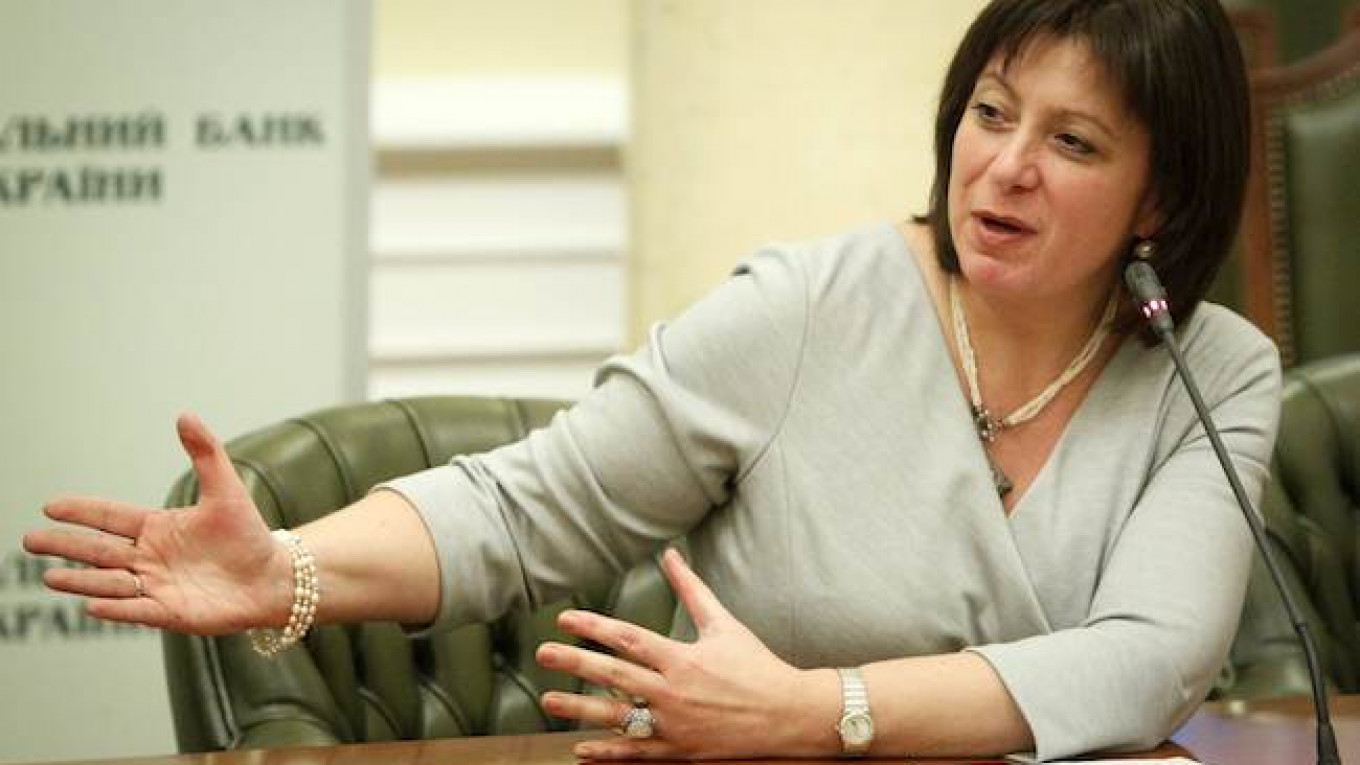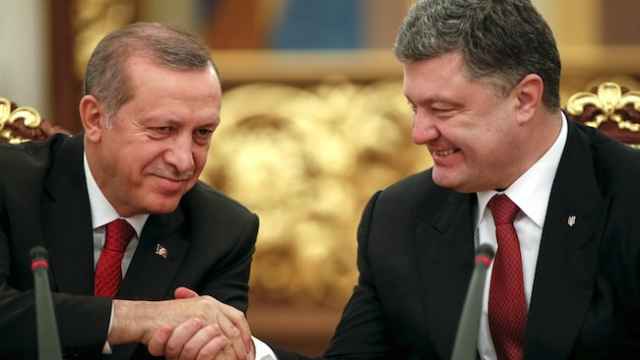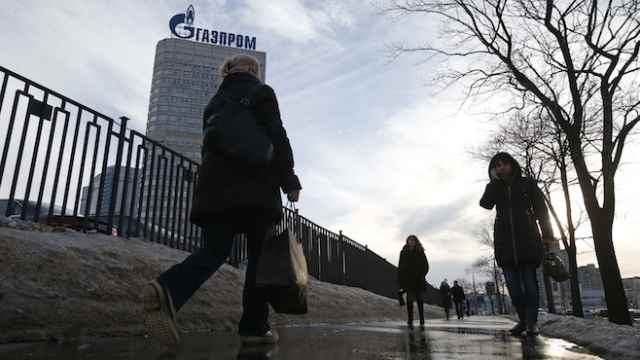Ukrainian Finance Minister Natalia Yaresko said Friday she has begun meeting with the embattled nation's main creditors and expects to issue $1 billion in U.S. government-backed debt by the end of April as part of a larger IMF-backed loan package.
"People are taking U.S. government risk in this case. That is why they give a credit guarantee, otherwise we wouldn't have access to the market at this time," Yaresko said in an interview before speaking to the Council on Foreign Relations in New York.
The International Monetary Fund's $17.5 billion loan package was agreed last week. That helped to unlock an additional $7.5 billion from other donors, out of which the United States is guaranteeing $2 billion in debt to be issued by Ukraine.
"This will help us again to restore credibility, confidence and the level of reserves in our central bank as quickly as possible," she said, noting how an initial $5 billion tranche of money from the IMF has already doubled international reserves.
Ukraine is working to rebuild confidence in the economy as it struggles against pro-Russian separatists in its east. The IMF predicts the economy will contract 5.5 percent this year.
"Less than 10 percent of my territory is in conflict. To be very clear, 93 percent of the territory is open for business, healthy and struggling to regain growth," she said.
What remains as the wildcard is what kind of negotiation Ukraine can work out with private sector creditors, where it hopes to achieve about $15.3 billion in debt relief. That puts the overall financing package at $40 billion.
"There are three targets. One is a balance of payments objective, one is a debt sustainability objective and the third is a payment capacity objective," she explained.
The instruments for achieving these will include maturity extension, coupon reduction and principal reduction.
Russia is part of that group of creditors. It holds a $3 billion Eurobond that matures in December.
By far Ukraine's largest private creditor is San Mateo, California-based Franklin Templeton, holding between 25 to 30 percent of the par value outstanding on nearly every series of government bonds, according to Thomson Reuters eMAXX database, making them the key player in any talks.
Yaresko said she has already met with the firm, "as well as other West Coast investors. In general I am trying to meet my 15 largest creditors."
She has creditor meetings in New York on Friday and in London on Monday.
Creditors have yet to form a committee to formally negotiate a settlement, Yaresko said. She could not discuss how big of a haircut they will have to take in order for the government to achieve one of its primary goals of medium-term debt sustainability.
"I think if you look at the market, I think the market is pricing the debt taking into account this perimeter. That is something in the end that we will be discussing with the creditors, trying to do this on a collaborative basis," she said.
"I don't think there is time for a formal creditors committee because we have a very short time frame in which to negotiate this. But I think an ad hoc committee would be helpful," Yaresko said.
The next review by the IMF in preparation for the next tranche of loans is due in May with an expected release of money in June, she said.
"Being on the (IMF) program is part of building confidence. Ukraine has a history or reputation of not being able to stick with it... My goal is to continue to be in line with the program consistently and prove to people this is a new Ukraine."
A Message from The Moscow Times:
Dear readers,
We are facing unprecedented challenges. Russia's Prosecutor General's Office has designated The Moscow Times as an "undesirable" organization, criminalizing our work and putting our staff at risk of prosecution. This follows our earlier unjust labeling as a "foreign agent."
These actions are direct attempts to silence independent journalism in Russia. The authorities claim our work "discredits the decisions of the Russian leadership." We see things differently: we strive to provide accurate, unbiased reporting on Russia.
We, the journalists of The Moscow Times, refuse to be silenced. But to continue our work, we need your help.
Your support, no matter how small, makes a world of difference. If you can, please support us monthly starting from just $2. It's quick to set up, and every contribution makes a significant impact.
By supporting The Moscow Times, you're defending open, independent journalism in the face of repression. Thank you for standing with us.
Remind me later.






